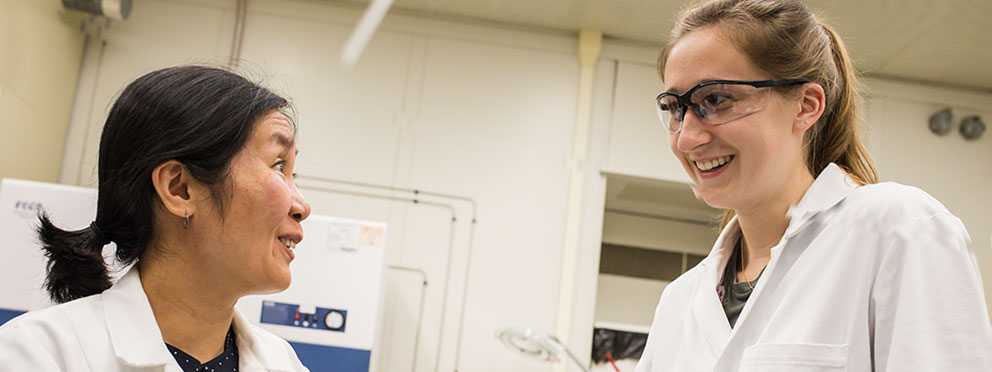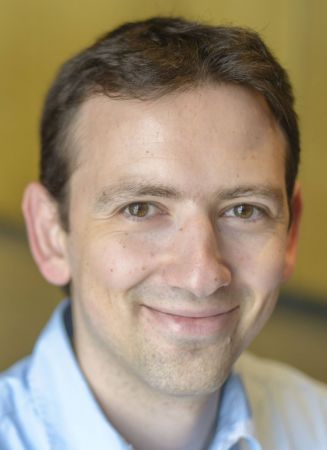 As a junior majoring in electrical engineering, Mark Schafer ’20 ’22G attended a bioengineering seminar on the topic of single-walled carbon nanotubes. One of Schafer’s professors, Yevgeny Berdichevsky, was also in the audience.
As a junior majoring in electrical engineering, Mark Schafer ’20 ’22G attended a bioengineering seminar on the topic of single-walled carbon nanotubes. One of Schafer’s professors, Yevgeny Berdichevsky, was also in the audience.
“Afterward, he mentioned he was surprised to see me at a bioengineering seminar,” Schafer recalls. “I explained my desire to get into research that bridged the divide between bioengineering and electrical engineering. So we kept talking, and I wound up in his lab my senior year, which led me to continue studying for a master’s degree at Lehigh with him as my advisor.”
Schafer says conversations with his girlfriend, Krista Wollerman ’20, who was majoring in bioengineering piqued his interest in the field. (The two met as first-year students and became engaged last summer; Wollerman will begin PhD studies in cancer biology this fall at the Tufts Graduate School of Biomedical Sciences.)
“It was her talking about what she was doing and proposing some areas of interest to me that inspired me to start looking into biotech,” he says. “There’s a lot of innovation happening there.”
Berdichevsky’s cutting-edge research focuses on developing better neural model systems to study brain information processing and neuromodulation. Schafer says the associate professor of bioengineering and electrical and computer engineering has influenced him through his words and by example.
“He’s living proof that it’s possible not only to make the transition from electrical engineering to bioengineering but to make it so successfully that you can become a faculty member at a university like Lehigh,” Schafer says.
As he’s progressed with his MS studies, Schafer says he’s had “a good thing going” in his biological laboratory work with Berdichevsky.
“We’re doing some really interesting research with neurons, developing techniques to culture them in novel ways and analyzing networks they create and the dynamics of their interactions,” he says.
Specifically, his research focus for the past two years has been on three-dimensional neuron culture. One of its applications is studying glioblastoma.
“To study brain cancer,” he says, “you need a system in your lab where you can perform experiments to learn more about how the cancer behaves. Currently, those models fall short in many ways. So we’re trying to create a model that’s more representative of the human brain and more accurate. That would hopefully allow us to make some discoveries into how the cancer moves through the tissue.”
Outside of his own research, Schafer is particularly intrigued by suspended microchannel resonators, which test for cancer resistance to drug therapy.
“This is the kind of technology that makes me passionate about biomedical engineering,” Schafer says, “because it’s a technically interesting device, and it has the potential to drive better research in cancer therapy.”
After graduation, Schafer will move to Boston with his fiancée and apply his Lehigh education at Draper, aka the Charles Stark Draper Laboratory, as an electronics hardware design engineer.
“I will be designing solutions that bring novel sensor platforms into practice,” he says. “It has always been my dream to work with cutting-edge technology. At Draper, I will get the chance to learn a lot and grow as an engineer along the way.”
—Chris M. Junior is a freelance contributor for the P.C. Rossin College of Engineering and Applied Science


